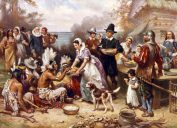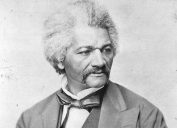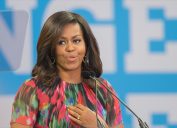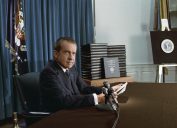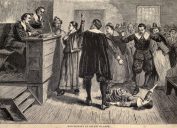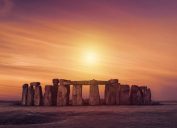This Is Why Many People Call Columbus Day Indigenous Peoples' Day
The second Monday of October has a new moniker in some states.
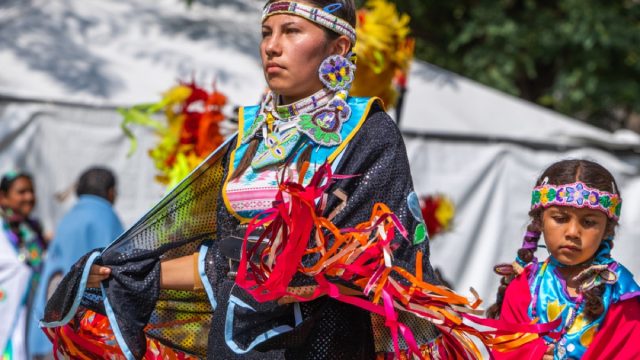
Traditionally, on the second Monday of October, many Americans celebrate Columbus Day. But don't be surprised if your city or town doesn't engage in revelry for Christopher Columbus this year. Recently, more and more Americans are choosing instead to celebrate Indigenous Peoples' Day, which instead recognizes the first people to populate the lands that later became the United States.
Columbus Day officially celebrates the anniversary of Columbus' arrival in the Americas, on October 12, 1492. It's been a federal holiday since 1937, but, since states and cities can choose whether or not they want to participate in a federal holiday, more are opting for the latter. Critics argue that in celebrating Columbus Day, we're glorifying the mass genocide and colonization of the people native to the United States. Activists in the Indigenous community who first proposed the idea of eliminating Columbus Day see Columbus not as an explorer, but as the person responsible for the genocide of their people.
Our people were once jailed for carrying a hand drum not that long ago. Today our children are living loud & proud of who they are as indigenous peoples! They are their full selves, thriving! #IndigenousPeoplesDay #IsEveryday #ThrivingAsNative #WeAreStillHere #NativeAmerican pic.twitter.com/tnbIF7Aatn
— Theresa Sheldon (@SheldonTheresa) October 5, 2019
The idea of replacing Columbus Day with a celebration of Indigenous Peoples was first proposed in 1977 at the International Conference on Discrimination, sponsored by the United Nations. But Indigenous Peoples' Day didn't come to fruition until 1992, when the Bay Area Indian Alliance in California successfully proposed to the Berkeley City Council to designate Columbus Day that year (October 12th) as the Day of Solidarity with Indigenous People. (They also requested the city of Berkeley implement an education program in schools, libraries, and museums that celebrated Indigenous cultures instead of Columbus himself.) Every year since, the city of Berkeley, California, has celebrated Indigenous Peoples annually on what's traditionally been Columbus Day.
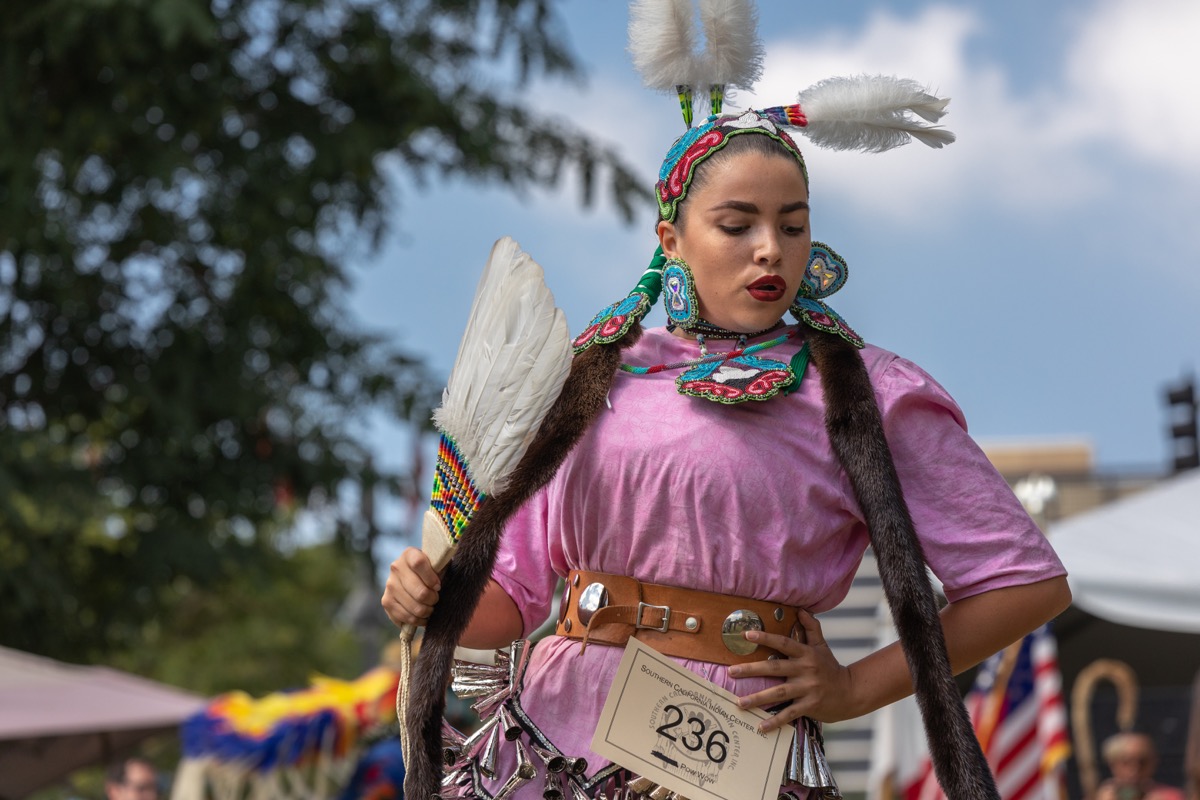
"[Columbus] was one of the first Europeans to get to the American continent, but there was a lot of history that came after that in terms of the wiping out of native people," Berkeley's former mayor Loni Hancock told Time in 2014. "It just didn't seem appropriate. It seemed like a reemphasizing of history and recognizing that to be very ethnocentric really diminishes us all."
The celebration of Indigenous Peoples' Day takes many different forms. There are educational opportunities like lectures and exhibits, aiming to increase awareness of Indigenous Peoples' culture and history. And some people also use this day to protest Columbus and his treatment of Indigenous Peoples.
As of October 10, 2019, Indigenous Peoples' Day is officially celebrated in eight states—Maine, New Mexico, Vermont, North Carolina, Alaska, South Dakota, Oregon, and Wisconsin—and 130 cities and towns across the United States. And most recently, Washington, D.C., joined in as well.
The Council of District Columbia approved emergency legislation to rename Columbus Day as Indigenous Peoples' Day on October 9, 2019. "Columbus enslaved, colonized, mutilated, and massacred thousands of Indigenous People in the Americas," D.C. Councilmember David Grosso said in a statement. "We are a government that values equality, diversity, and inclusion. Continuing to observe a holiday built on the celebration of oppression runs counter to those values." And for more ways to reexamine our country's past, learn all about The 40 Most Enduring Myths in American History.
To discover more amazing secrets about living your best life, click here to follow us on Instagram!
